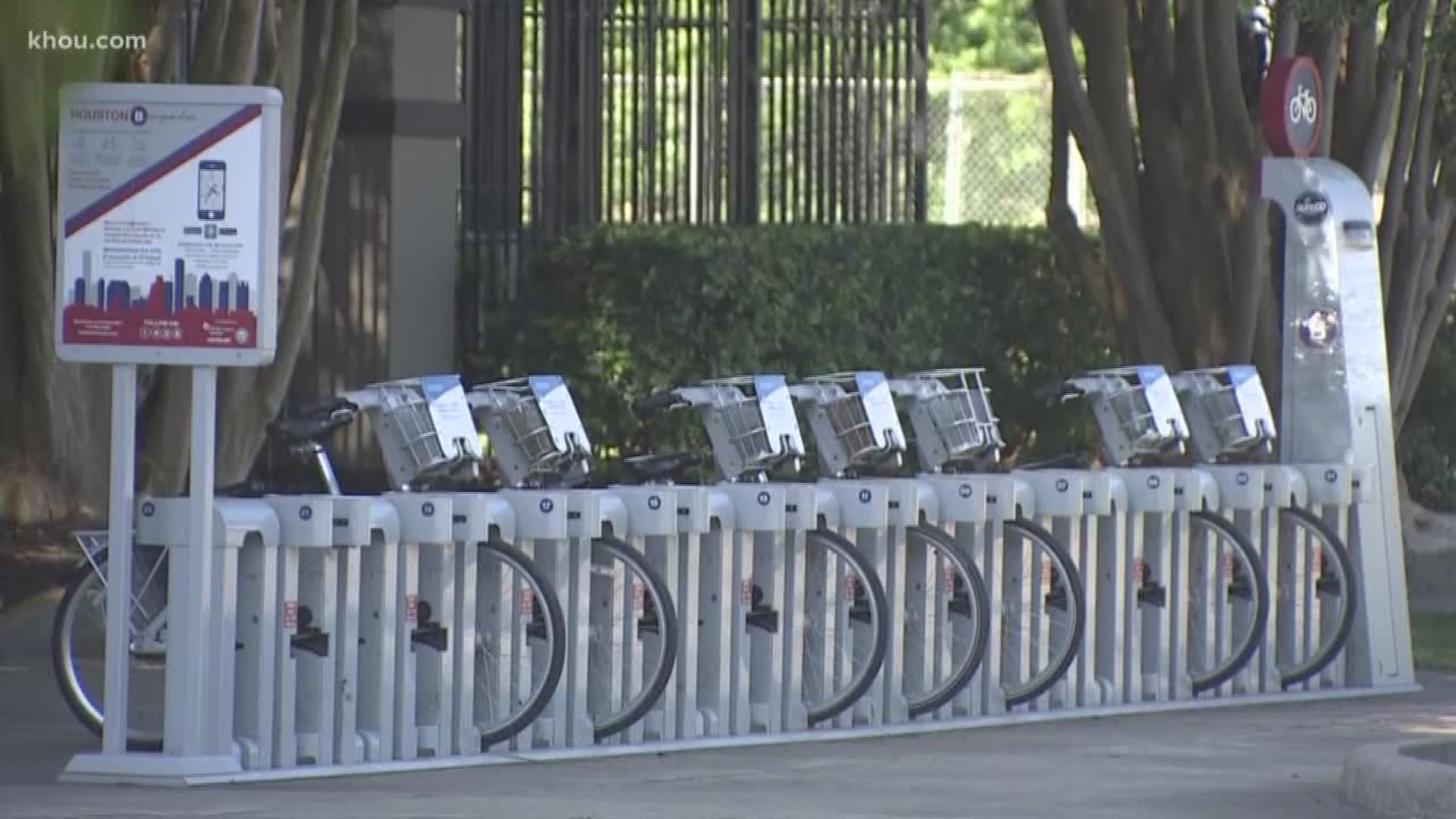HOUSTON — People are being asked to stay at home, but that doesn’t mean people are staying inside.
It turns out, the bicycle business is booming.
“We’ve seen people using bike share really as a much-needed stress relief and outlet,” said Beth Martin, executive director of Houston BCycle.
Martin says BCycle had a record month in March with over 26,000 trips.
“What we weren’t seeing were people adhering to CDC guidelines of keeping six feet of distance, that social distancing component, between themselves and others,” Martin said.
She said the problem areas were parks like Buffalo Bayou, Memorial and Hermann Park.
As a result, BCycle decided to close 12 popular stations in those areas to discourage the spread of COVID-19.
They’re also sanitizing stations that are open as often as possible.
“People are definitely seeking that recreational outlet. That’s an essential activity defined in the stay home-work safe order. We just want to make sure people do that responsibly and safely,” Martin said.
She said that means social distancing. They’re also asking people to wear gloves and wash hands before and after rides.
Coronavirus symptoms
The symptoms of coronavirus can be similar to the flu or a bad cold. Symptoms include a fever, cough and shortness of breath, according to the Centers for Disease Control. Some patients also have nausea, body aches, headaches and stomach issues. Losing your sense of taste and/or smell can also be an early warning sign.
Most healthy people will have mild symptoms. A study of more than 72,000 patients by the Centers for Disease Control in China showed 80 percent of the cases there were mild.
But infections can cause pneumonia, severe acute respiratory syndrome, kidney failure and even death, according to the World Health Organization. Older people with underlying health conditions are most at risk for becoming seriously ill. However, U.S. experts are seeing a significant number of younger people being hospitalized, including some in ICU.
The CDC believes symptoms may appear anywhere from two to 14 days after being exposed.
Human coronaviruses are usually spread through...
- The air by coughing or sneezing
- Close personal contact, such as touching or shaking hands
- Touching an object or surface with the virus on it, then touching your mouth, nose or eyes before washing your hands.
Help stop the spread of coronavirus
- Stay home when you are sick.
- Eat and sleep separately from your family members
- Use different utensils and dishes
- Cover your cough or sneeze with your arm, not your hand.
- If you use a tissue, throw it in the trash.
- Follow social distancing
Lower your risk
- Wash your hands often with soap and water for at least 20 seconds. If soap and water are not available, use an alcohol-based hand sanitizer.
- Avoid touching your eyes, nose, and mouth with unwashed hands.
- Avoid close contact with people who are sick.
- Clean and disinfect frequently touched objects and surfaces.
- If you are 60 or over and have an underlying health condition such as cardiovascular disease, diabetes or respiratory illnesses like asthma or COPD, the World Health Organization advises you to try to avoid crowds or places where you might interact with people who are sick.
Get complete coverage of the coronavirus by texting 'FACTS' to 713-526-1111.

